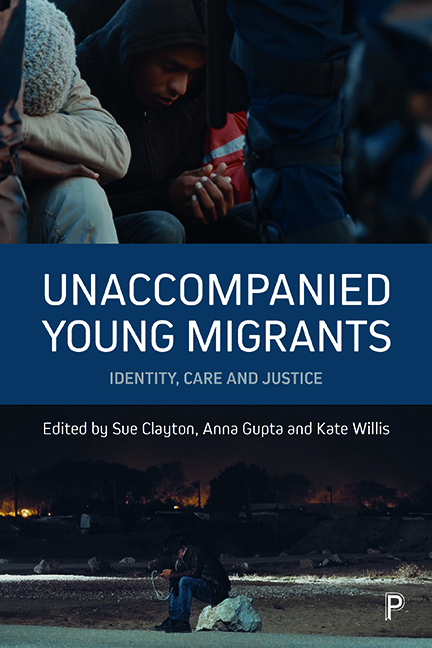four - Narrating the young migrant journey: themes of self-representation
Published online by Cambridge University Press: 21 April 2022
Summary
In this chapter I will reflect, from my perspective as a filmmaker and news producer, on ways in which refugee youth has been represented in recent years in the UK media. I consider that such representations have had a material effect on the way these young people are perceived, and perceive themselves. I will draw on my experience of working with unaccompanied children and young people in focusing on the role of film and video to enable them to articulate different narratives that might more fully reflect their challenges and aspirations. I will also consider how we may need to interrogate our own attitudes to adapt to these new refugee perspectives.
Reporting young refugees
Particularly since the so-called refugee crisis of 2015 onwards, a number of surveys have been produced on the press coverage of asylum-seeking refugees in Europe (Berry et al, 2015; Zhang and Hellmueller, 2017). Berry et al identify two contrasting perspectives in media coverage: first, a view of the refugee condition as a global human-rights issue that looks for causes and solutions in the wider politics of conflict and war; and second, in opposition, one that regards refugees en masse as something hardly human – threatening, invasive and likely to damage the host country's way of life. The authors find that while the continental European press carry an average of 8.9% of all stories in this latter category, the UK's figures are disturbingly higher, with the Daily Telegraph at 15.8%, The Sun at 26.2%, and the Daily Mail at 41.9%. Berry summarises as follows:
The most striking finding in our research is how polarised and aggressive British press reporting was compared to the other countries. In most countries, newspapers, whether left or right, tended to report using the same sources, featured the same themes and provided similar explanations and solutions to the crisis. But in Britain the situation was very different. While the Guardian – and to a lesser extent the Daily Mirror – featured a range of humanitarian themes and sources sympathetic to the plight of refugees, the rightwing press consistently endorsed a hardline anti-refugee and migrant, Fortress Europe approach (Berry, 2016).
- Type
- Chapter
- Information
- Unaccompanied Young MigrantsIdentity, Care and Justice, pp. 115 - 134Publisher: Bristol University PressPrint publication year: 2019



